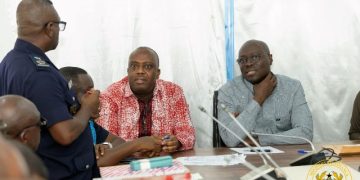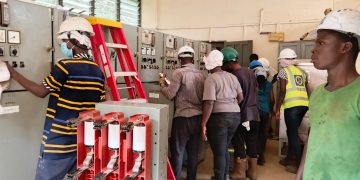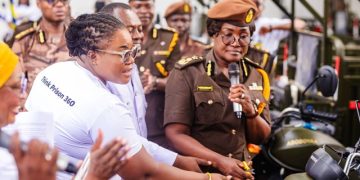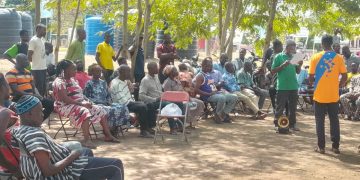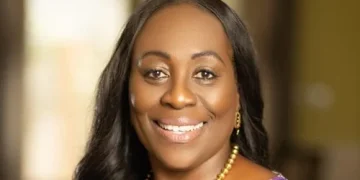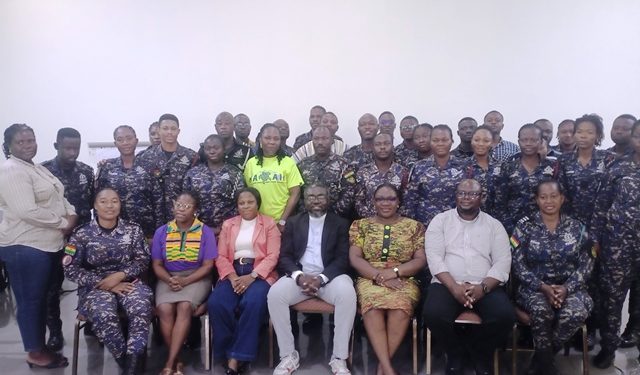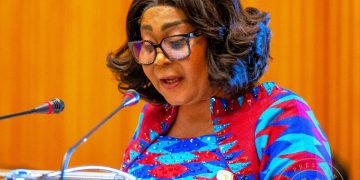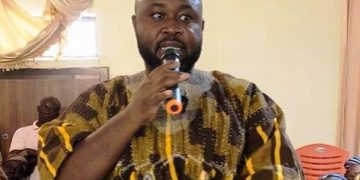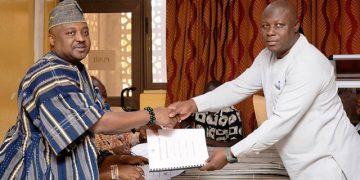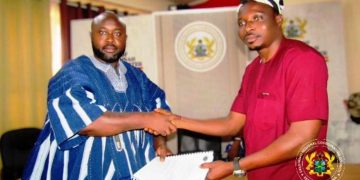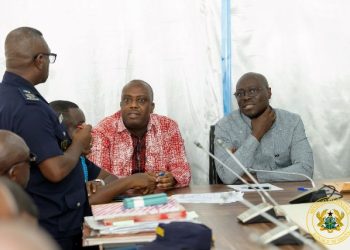Two of Ghana’s most prominent human rights lawyers, together with a leading civil society activist on minority rights, have warned that the reintroduced Anti-LGBTQ Bill before Parliament poses severe risks not only to queer persons but also to police officers, journalists, and ordinary citizens.
Speaking at a two-day human rights training workshop for personnel of the Ghana Police Service in Tamale, the lawyers and the CSO representative outlined what they described as alarming implications of the bill should it eventually be passed into law.
Organised by the Centre for Democratic Development (CDD-Ghana), the workshop aimed to sensitise officers on rights-based policing in anticipation of the bill’s potential enactment. It sought to equip personnel with the knowledge and tools needed to promote, protect and respect the rights of all citizens, including sexual minorities.
Dr. Michael Augustus Akagbor, Senior Programs Officer at CDD-Ghana, said the training aimed to prepare officers for the practical realities they would face if the bill becomes law. “Once the bill becomes law, the police are the ones who enforce the bill,” he said, explaining why police must understand both the letter and the human rights implications of any future legislation.
Dr. Akagbor told Kumasimail’s Northern Regional Editor Joseph Ziem, the event was designed to “open up and share with the police a very nuanced understanding of what is in the bill, so that they can be very educated about what the bill is about and also be ready to deal with the situation should it become a law.”
He stressed that enforcement must be anchored in respect. “Should such cases come to them, they will always learn to deal with perceived persons from places of respect of their dignity and for their rights as citizens of this country.”
Highlighting gaps that the training surfaced, Dr. Akagbor said police personnel need a deeper grounding in constitutional rights. “The police themselves actually need a thorough understanding of what human rights actually are. There is a need to actually train police to be conversant with why the Constitution has human rights provisions in there,” he said, adding that “the fact that a person is perceived to have committed a crime does not mean they lose their rights as citizens.”
Dr. Akagbor also placed CDD’s work in context, saying persistent advocacy and litigation had already changed the debate. “If you follow the bill, the last time we introduced it in the previous Parliament, if not for the advocacy and litigation by CDD-Ghana, that bill would have become law,” he said.
He warned that the parliamentary push was driven more by politics than by public problem-solving: “For them (the minority), it is a game of politics…. they want to create the same sort of unpopularity for the government. It’s a political chess game.”
William Nyarko Esq., Executive Director of the Africa Centre for International Law and Accountability (ACILA), said the bill has been widely misunderstood as legislation targeting only LGBTQ persons. He argued that a closer reading shows it has far-reaching consequences for all citizens, including law-abiding members of the public and especially the police.
“There is an erroneous impression that this bill is against only queer people,” Nyarko said. “But as we walked police officers through the bill, it became clear to them that the bill is not just about gays; it is about them, street people, and all of us Ghanaians.”
Nyarko said the bill fails constitutionally because it criminalises the identity of persons, rather than specific actions. “You cannot make a bill and say it is against armed robbers. It must be against their activities,” he stressed.
He noted that many concerns used to justify the bill, including fears over same-sex marriage are already illegal or adequately covered in existing laws.
“There is no real problem that the bill seeks to solve,” he argued. “The Matrimonial Causes Act already makes marriage strictly between a man and a woman. Section 104 already criminalises certain acts. So this bill is trying to solve a non-existent problem.”
Nyarko also warned that the bill violates Article 108 of the Constitution because it imposes custodial sentences within a Private Member’s Bill, which would burden the state budget. “On a procedural matter alone, this bill violates Article 108. If passed in its current form, it will likely be struck down by the Supreme Court,” he said.
He added that journalists face some of the most extreme threats under the bill. “Journalists who give a platform to someone who expresses support for gay rights could face up to 10 years in prison,” Nyarko warned. “That is a direct violation of Article 162. Journalists cannot be punished for their work.”
Civil rights lawyer and activist Oliver Barker-Vormawor, who is a Senior Partner at Merton & Everett LLP, said the training was crucial because policing in Ghana suffers from structural and historical weaknesses that shape how officers understand rights.
“This is a democracy, and we have determined that we cannot live without the police,” he said. “So we must figure out how to live with them. That requires asking the hard questions about what currently prevents us from living in line with democratic intent.”
Barker-Vormawor, who has himself endured police brutality during activism, said lasting change requires more than lecturing officers on legal theory.
“If theory alone worked, then passing through the police academy would be enough,” he stated. “But it’s not. You must create context, human relationships and understanding. These conversations are more psychological than academic — we are trying to reorient thinking.”
He added that many officers demonstrate limited knowledge of human rights law because training is often abstract and disconnected from their daily realities.
“If training is made theoretical, they will hear it but won’t connect to it,” he said. “They understand during the training sessions, but struggle to apply it back in the field.”
He said human rights education must be continuous, backed by incentives and effective accountability. He raised concerns that the Police Professional Standards Bureau in the northern sector is severely understaffed, making public trust difficult to sustain.
“If only three officers are responsible for four regions, then we are in a losing fight,” he warned. “Knowledge creation must be paired with incentives and accountability.”
Political shifts influencing police behaviour
Responding to questions about police conduct under the current administration, Barker-Vormawor said citizens’ pressure has forced political actors to treat freedom of assembly more seriously.
“A new administration knows the previous government was judged heavily on how it handled protests,” he said. “So they want to put on their best behaviour, and the police read that body language.”
But he warned that relying on political posture is not sustainable. “The culture of policing itself must change irrespective of which government is in power,” he said. “When governments feel pressure or fear losing power, they revert to old habits and so do officers whose attitudes haven’t been transformed.”
The workshop covered key themes, including emerging human rights issues and minority rights concerns from the public, understanding human rights in policing, the constitution and Ghana’s international obligations to promote, protect, and fulfill the human rights of all persons, the duty to respect and promote the rights of vulnerable groups: the case of the police versus the LGBTQ+ community in Ghana, and the Ghanaian Family Values Bill 2021 and its reintroduction to parliament.
The workshop was also led by experts in human rights such as Professor Kwadwo Appiagyei-Atua, School of Law, University of Ghana, and Prof. Takyiwaa Manuh, Senior Fellow at CDD-Ghana.
Source: kumasimail.com


